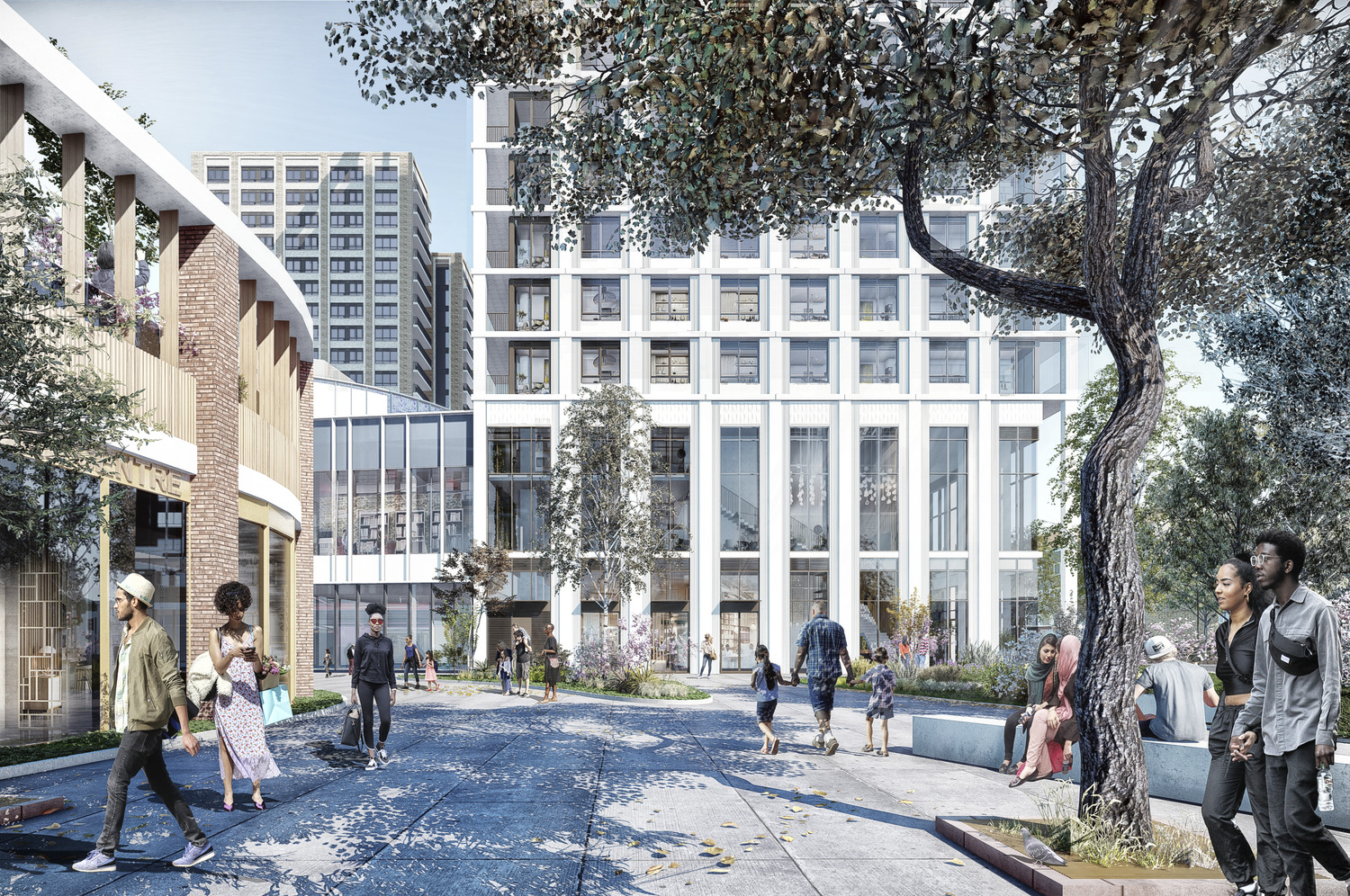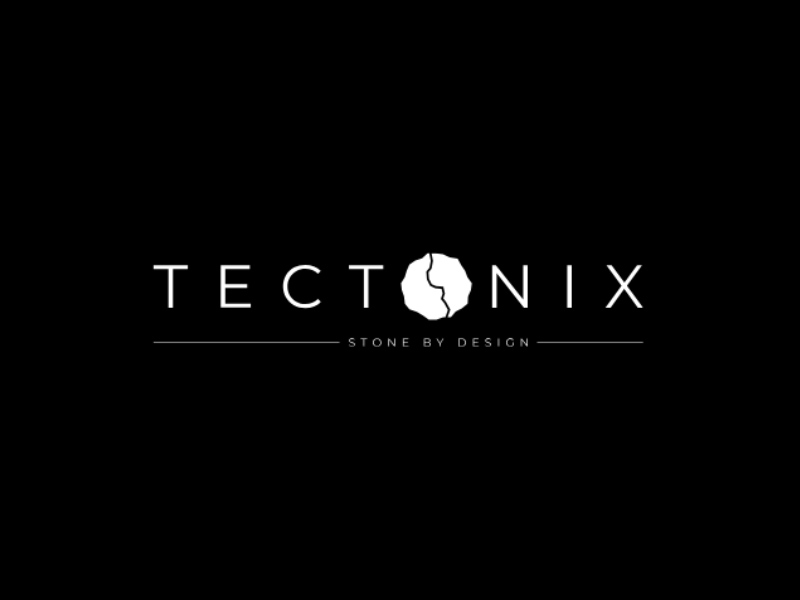Project showcase
Winstanley & York Road Regeneration

The brief for Winstanley & York Road Regeneration is to develop an attractive new neighbourhood. Following a successful resident ballot, Wandsworth Council selected Taylor Wimpey as their JV partner. HTA has developed a masterplan for over 2,500 homes, centred around a new park, with a leisure centre, library, nursery, a medical centre, retail and commercial space. The hybrid application for the masterplan, leisure centre and 502 homes in detail was approved unanimously by the Council in January 2020. An earlier enabling phase, currently nearing completion, facilitates relocation of an existing chapel and school, reprovides 46 council homes and delivers a 20- storey tower adjacent to Clapham Junction.
The masterplan has a far- reaching vision for the area to improve local residents’ quality of life and opportunities. HTA’s masterplan provides more affordable housing and a new park, which will be used by the whole community. The park is key to the placemaking of the regenerated estate with the social, cultural and economic character of the area being transformed through the new Leisure, Cultural and Community Centre, reproviding a doctor’s surgery and relocating an existing church and school within the wider masterplan area. A commitment to training and new jobs throughout the construction, process coupled with new opportunities created by office and retail spaces will advance the local community’s knowledge and skills beyond the duration of the project.
Describe the context and brief for this place?
The brief for Winstanley & York Road Regeneration is to develop an attractive new neighbourhood that provides better opportunities for all, where people are proud to work, live and visit. The regeneration will deliver up to 2,550 homes across a 10.52ha site. Unanimously approved at planning, the Hybrid Application will deliver new and replacement homes, a new Leisure and Community Centre and up to 2,500sqm of commercial and community uses all focused around a new park. The site is located to the north of Clapham Junction railway station and extends north to York Road, a major thoroughfare through Battersea. Beyond York Road are connections to the river.
The site’s strategic location between the railway station and the river means that it is well located to create new routes between these two areas. The existing site contains a number of buildings dating from the 1960s and 70s comprising a mix of houses, low rise flatted blocks, slab deck access blocks and towers. The buildings are arranged as buildings in space with hard standing around them connected by an estate road. The site comprises York Gardens, a green park with some mature tree planting within it. A two storey library building sits to the edge of the park and will be replaced within the approved scheme. The existing housing stock on site is generally at the end of its build life with window replacement and more fundamental structural work required to a number of buildings.
Describe your design for this place and how it will contribute to urban life?
This project provides a blueprint for London-wide estate regeneration. Following a successful resident ballot, Wandsworth Council selected Taylor Wimpey as their JV partner. HTA has developed a masterplan for over 2,500 homes, centred around a new park, with a leisure centre, library, nursery, a medical centre, retail and commercial space. The hybrid application for the masterplan, leisure centre and 502 homes in detail was approved unanimously by the Council in January 2020. An earlier enabling phase, currently nearing completion, facilitates relocation of an existing chapel and school, reprovides 46 council homes and delivers a 20- storey tower adjacent to Clapham Junction.
The masterplan has a far-reaching vision for the area to improve local residents’ quality of life and opportunities. HTA’s masterplan provides more affordable housing and a new park, which will be used by the whole community. The park is key to the placemaking of the regenerated estate with the social, cultural and economic character of the area being transformed through the new Leisure, Cultural and Community Centre, reproviding a doctor’s surgery and relocating an existing church and school within the wider masterplan area. A commitment to training and new jobs throughout the construction, process coupled with new opportunities created by office and retail spaces will advance the local community’s knowledge and skills beyond the duration of the project.
What was your process in coming up with the design? What research, consultation, workshops or conversations did you undertake?
HTA’s masterplan provides more social and affordable housing and a new park which will be used by the whole community. Our design process and methodology on this complex site had to respond to a number of constraints – most significantly, the existing housing stock and the need to decant residents, the phasing and demolition programme that would enable new buildings and new homes to be delivered, the existing open public space that could enable blocks to be delivered and swapped for public open space at a future date and the existing trees. In addition, our designs had to respond to the complex system of utilities that traversed the site. The environmental impact of where built form was proposed versus open space was also considered as the preliminary designs came forward. This process benefitted from being driven by a lead master planner with other architectural practices continuing to test elements of the wider masterplan before working up detailed building proposals.
Key to the design development was engagement with local residents which included an enhanced programme of public exhibitions attended by over 800 people, design workshops with stakeholders and key interest groups, as well as 1-2-1 meetings with residents regarding specific needs, design classes and assemblies at the local schools. Over 30 events have been carried out over an 18 month period, all recorded and shared through a project website, emails and social media, and a regular newsletter. Our resident engagement means that more people are involved in the design process at every stage.
How does your design respond to future changes in demographics, transport and the climate emergency to create a resilient place?
Due to its close proximity to the river, there are flood risk issues across the site resulting in raised floor levels for residential uses. This has been a feature designed into the mansion block language meaning ground floor residents are raised up above the streetscape awarding them privacy and separation from public areas. The park is designed to create a green lung within the area, incorporating existing trees and retaining flood storage capacity. Sustainable urban drainage and urban greening has been key to the park led masterplan with swales and rain gardens created where green public open space meets roadways and routes.
Apartments are designed to cater for existing and future needs. A number reproviding specific requirements for existing households such as a six bedroom wheelchair apartment for an extended family currently living on site but are also designed to deliver a mix of homes that will suit and encourage a changing demographic. All homes are designed to be lifetime homes compliant with 10% of accommodation delivered for wheelchair housing. Reducing car dependency through low levels of parking and encouraging greener modes of travel, cycle storage and creating streets that encourage walking are some of the design moves that will contribute to creating a sustainable masterplan.
A brick architectural language will ensure longevity of buildings, designed to be robust and minimise maintenance costs. High performing facades designed to reduce the need for heating, avoid overheating and maximise daylighting are key to the approach with dual aspect accommodation maximised throughout the scheme.
Festival of Pineapples
24-26 February 2026
Pineapples prize giving night
April
Pineapples at Festival of Place
10 June 2026
© The Pineapples - Tweak Ltd. 124 City Road, London, EC1V 2NX. Tel: 020 3326 7238



